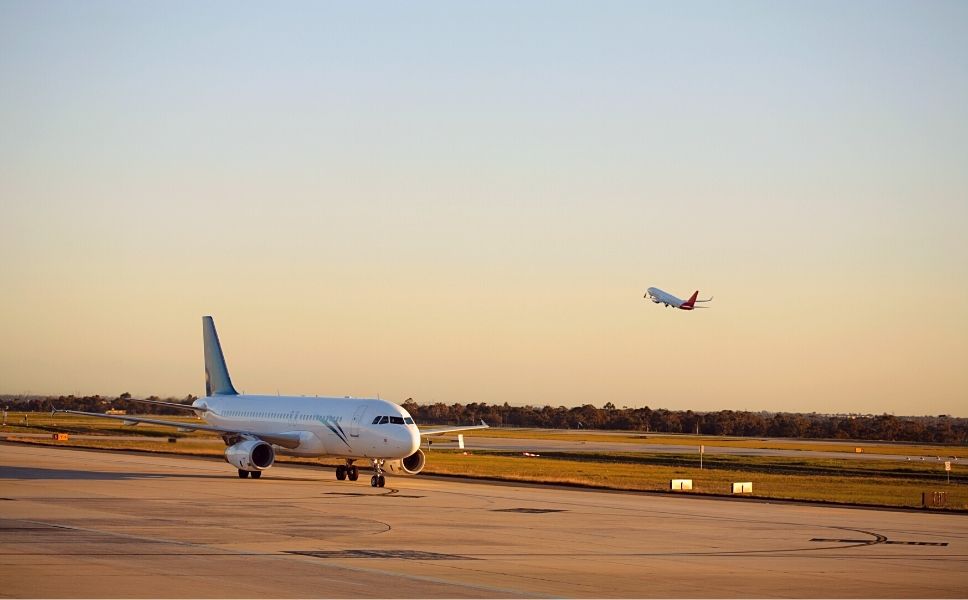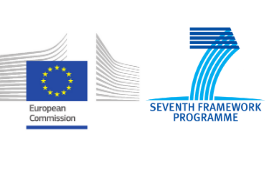- Application of Agent-Based Computational Economics to Strategic Slot Allocation
- Consortium: Nommon (project coordinator), ALG, the Social Systems Engineering Centre of the University of Valladolid (INSISOC), and the University of Trieste.
- 2013 – 2015

ACCESS was a project within SESAR JU WPE Long Term and Innovative Research which addressed airport slot allocation from the perspective of complex adaptive systems. The project developed an agent-based model of the air transport network that was used to evaluate different designs of market-based mechanisms for airport slot allocation.
Context
The European regulation for airport slot allocation, which retains and develops the principles of the IATA slot allocation process, has been proven insufficient to cope with the gap between capacity and traffic, and there is evidence that the design of the current process is neither consistent with an economically efficient use of capacity nor with the facilitation of fair competition at congested airports. Market-based mechanisms are expected to provide the right economic incentives to favour a more efficient use of the available capacity, as well as higher flexibility for airlines to adapt their slot portfolio to their business objectives and planning constraints; but they also imply a number of risks, ranging from the potentially negative impact on airline operating costs to market imperfections, exercise of market power, or market failures.
The ACCESS project
ACCESS addressed airport slot allocation from the perspective of complex adaptive systems. Due to the complexity of the combinatorial assignment problems underlying primary slot auctioning and secondary slot trading, agent-based computational economics provides a particularly suitable framework to undertake a rigorous and formal study of different alternatives for market design, allowing the modelling and exploration of features — such as bounded rationality, evolutionary behaviour and asymmetry of information — that are not properly captured by classical approaches from economics and operations research.
The project first analysed the current mechanisms for slot allocation in Europe and the practical experiences with auction-based mechanisms in other sectors, which has served as a basis to formalise different possible designs for market approaches to airport slot allocation. We then built a test environment which includes a stylised model of the air transport network and behavioural models of the air transport stakeholders. Finally, we defined a number of relevant scenarios and made use of the newly developed models and tools to assess the impact of the proposed market-based mechanisms.
Read ACCESS Position Paper: Application of Agent-Based Computational Economics to Strategic Slot Allocation.
Goals
ACCESS had the following objectives:
- Perform a quantitative analysis of the improvement margin of the current airport slot allocation system.
- Review different market-based mechanisms used in other sectors, and analyse whether they could be suitable to tackle the problem of strategic airport capacity allocation.
- Formalise the mechanisms retained as a result of the previous analysis.
- Develop a theoretical framework for the evaluation of slot allocation mechanisms, with the aim to assess their impact on network performance and the costs and benefits for the involved stakeholders.
- Develop a software tool implementing the theoretical framework and allowing the testing of the proposed market-based mechanisms, including a simulation model and a data analysis module allowing the interaction with the simulation results and facilitating their interpretation.
- Provide an assessment of the proposed market-based mechanisms at European level, identifying the main levers and barriers for their implementation.
- Propose a roadmap for the implementation of the most beneficial solutions.
Results
ACCESS developed an agent-based simulation platform that allows the assessment of various airport slot allocation mechanisms in different scenarios. The Working Paper Agent-Based Simulation of Airport Slot Allocation Mechanisms: Analysis of Results provides an overall view of the ACCESS simulation platform and describes the simulation experiments conducted in the frame of the project.
The first set of simulation experiments explored the use of combinatorial price-setting auctions for primary slot allocation. The experiments show the ability of the proposed auction to balance capacity and demand, and allow us to analyse the impact of different parameterisations on the dynamics of the auction, in particular on the auction convergence times, helping us derive guidelines for optimising the auction design.
A second set of experiments were performed to compare the auction-based slot allocation and the administrative slot allocation mechanism based on grandfather rights. These experiments show that the auction allows the allocation of scarce airport capacity to those airlines able to make best economic use of it and increases the total social welfare with respect to the current administrative system. At the same time, these experiments demonstrate the ability of the ACCESS simulation platform to capture the distribution of costs and benefits of different slot allocation mechanisms among different stakeholders. The results show that a proper evaluation of different slot allocation mechanisms requires not only an analysis of total surplus (social welfare), but also of the way this surplus is distributed among stakeholders, as a necessary step to understand the conditions for stakeholders’ buy-in of any potential regulatory changes.
Working Papers
- ACCESS Position Paper: Application of Agent-Based Computational Economics to Strategic Slot Allocation.
- ACCESS Working Paper 1: Performance of the Current Airport Slot Allocation Process and Stakeholder Analysis Report.
- ACCESS Working Paper 2: Review of Auction-Based Markets.
- ACCESS Working Paper 3: Market-Based Mechanisms for Airport Slot Allocation: Formalisation and Assessment Criteria.
- ACCESS Working Paper 4: ACCESS Simulation Framework Specification.
- ACCESS Working Paper 5: ACCESS Simulation and Analysis Toolset.
- ACCESS Working Paper 6: Agent-Based Simulation of Airport Slot Allocation Mechanisms: Analysis of Results.
Scientific Papers
- Ranieri, A., Alsina, N., Castelli, L., Bolić, T., Herranz, R. (2013). Airport slot allocation: performance of the current system and options for reform. Proceedings of the 3rd SESAR Innovation Days, Stockholm, Sweden, November 2013.
- Ramírez, M., Araúzo, A., Villafáñez, F., López-Paredes , A. (2014). System of Systems Engineering for the Airport Slot Allocation Problem. Proceedings of the 2014 9th International Conference on System of Systems Engineering (SOSE), Adelaide, Australia – 9th-13th June 2014.
- Ramírez, M., Villafáñez, F., Araúzo, A., López-Paredes, A. (2014). Agent-Based Pilot Model for Alternative Primary Airport Slot Allocation with Price-Setting Auctions. Proceedings of the 4th SESAR Innovation Days, Madrid, Spain, November 2014.
- Herranz, R., Toribio, D., Ramírez, M., Villafáñez, F., Araúzo, J.A., Poza, D., Alsina, N., Garrigó, L., Castelli, L., Bolic, T. (2015). Price-Setting Auctions for Airport Slot Allocation: a Multi-Airport Case Study. Proceedings of the 5th SESAR Innovation Days, Bologna, Italy, December 2015.
- Pellegrini, P., Bolić, T., Castelli, L., Pesenti, R. (2017). SOSTA: An effective model for the simultaneous optimisation of airport slot allocation. Transportation Research Part E: Logistics and Transportation Review Vol. 99, pp. 34-53.
Check out our Scientific publications page.
Conference talks
- ACCESS Poster at SIDs 2013.
- Ranieri, A. (2013). Airport slot allocation: performance of the current system and options for reform. Presentation at the 3rd SESAR Innovation Days, Stockholm, Sweden, 27th November 2013.
- Ramírez, M. (2014). System of Systems Engineering for the Airport Slot Allocation Problem. Presentation at the IEEE 9th International Conference on System of Systems Engineering (SoSE 2014), Adelaide, Australia, 12th June 2014.
- Ramírez, M. (2014). Agent-Based Pilot Model for Alternative Primary Airport Slot Allocation with Price-Setting Auctions. Presentation at the 4th SESAR Innovation Days, Madrid, Spain, 26th November 2014.
- Herranz, R. (2015). Price-Setting Auctions for Airport Slot Allocation: a Multi-Airport Case Study. Presentation at the 5th SESAR Innovation Days, Bologna, Italy, 2nd December 2015.

This work was co-financed by EUROCONTROL acting on behalf of the SESAR Joint Undertaking and the European Union as part of Work Package E in the SESAR Programme.